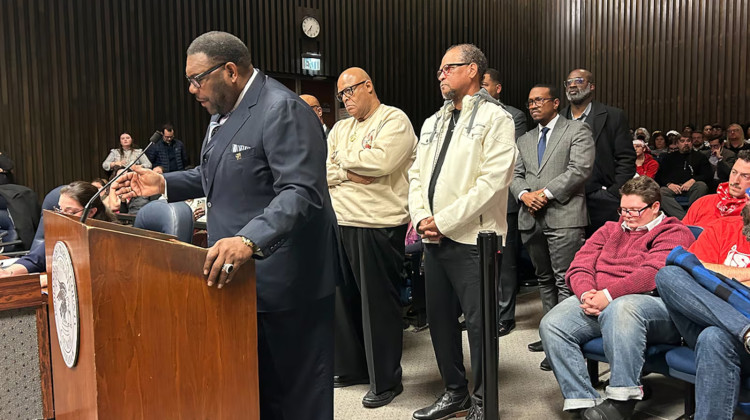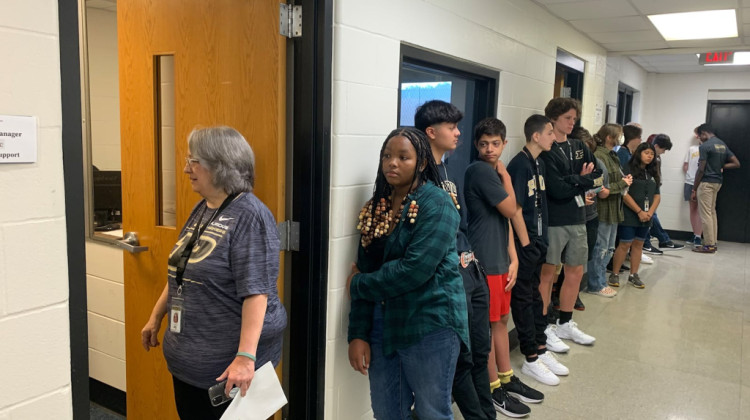
Rep. Ron Bacon sponsored a bill approved by the general assembly earlier this year, to require heat-illness training for school coaches across the state. (Lauren Chapman/IPB News)
Overwhelming heat - like the more than 90 degree temperatures Indiana has seen in recent weeks and may see again soon - can be deadly for student athletes, but a new state law means this is the last summer some athletic coaches in the state may not have training to spot heat-related illnesses.
Assistant athletic trainer at Bloomington High School South Brett Lattire says coaches there already receive training around heat exhaustion, but making every school coach in the state has that training could be life saving.
"Once heat illness starts, if you don't try to intervene quickly, things start to go downhill very very quickly, like within minutes," he says.
READ MORE: Heat Exhaustion Training For Coaches Required By New Law
Lattire says having coaches trained to recognize the symptoms can make sure students get help when they need it, especially in schools that might not have an athletic trainer to help spot and treat student injuries.
Evidence of dehydration is often the first and most common symptom of heat-related illness, but others like muscle cramps, nausea, headache, and vomiting, could mean more severe conditions.
"You don't want to cool them down rapidly, because that could send their body into shock, but you want to cool them down as soon as possible," he says. "Get them out of the heat, take the sweaty clothes off, get some ice around like neck, armpits."
Part of the new law around concussion training for coaches goes into effect next week, but heat-related training requirements don't kick-in until Jan. 1.
 DONATE
DONATE






 Support WFYI. We can't do it without you.
Support WFYI. We can't do it without you.